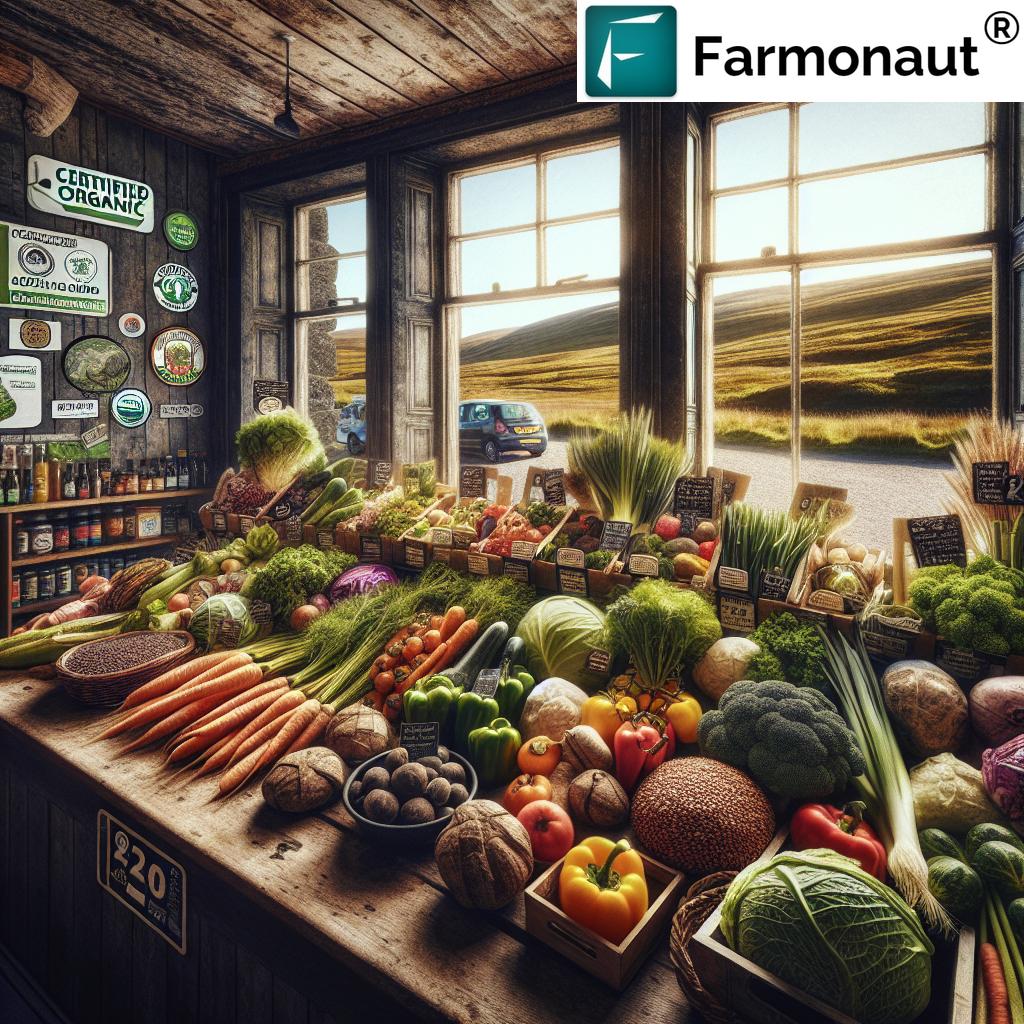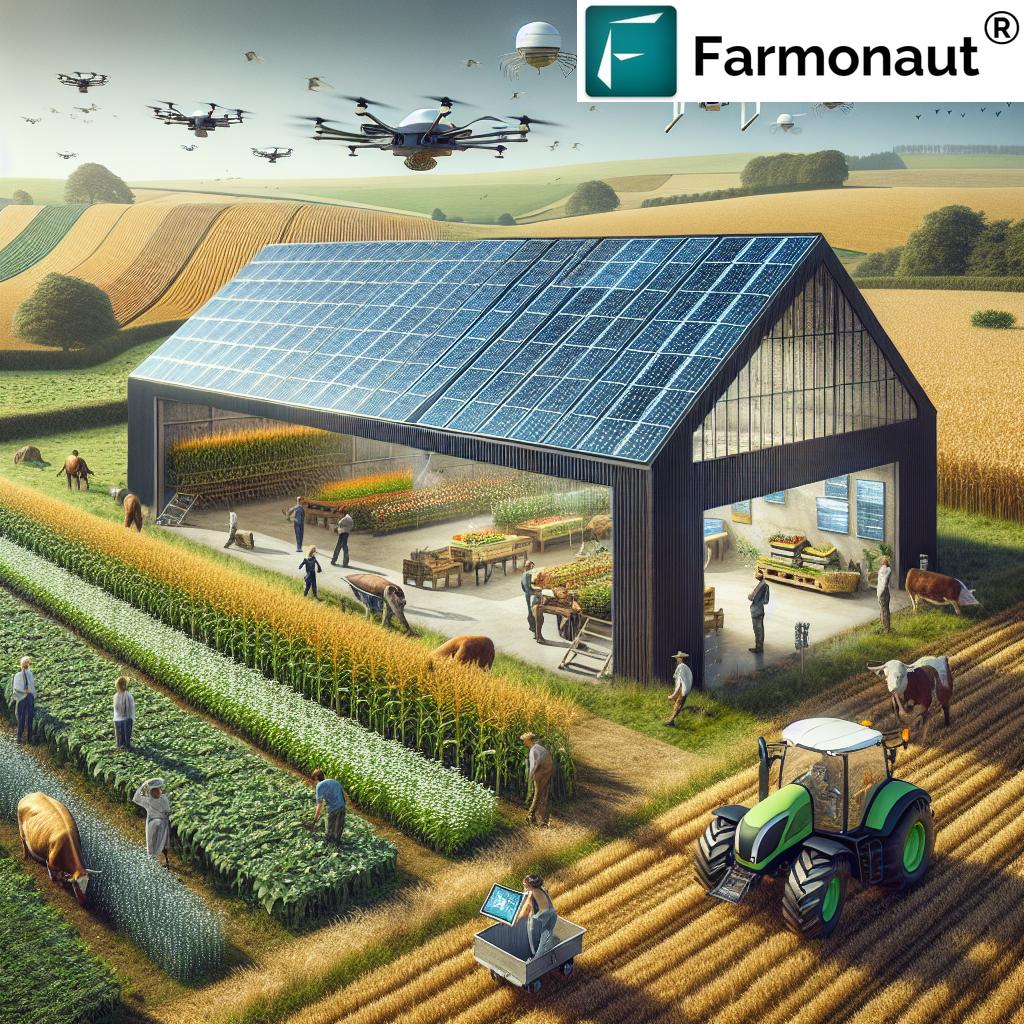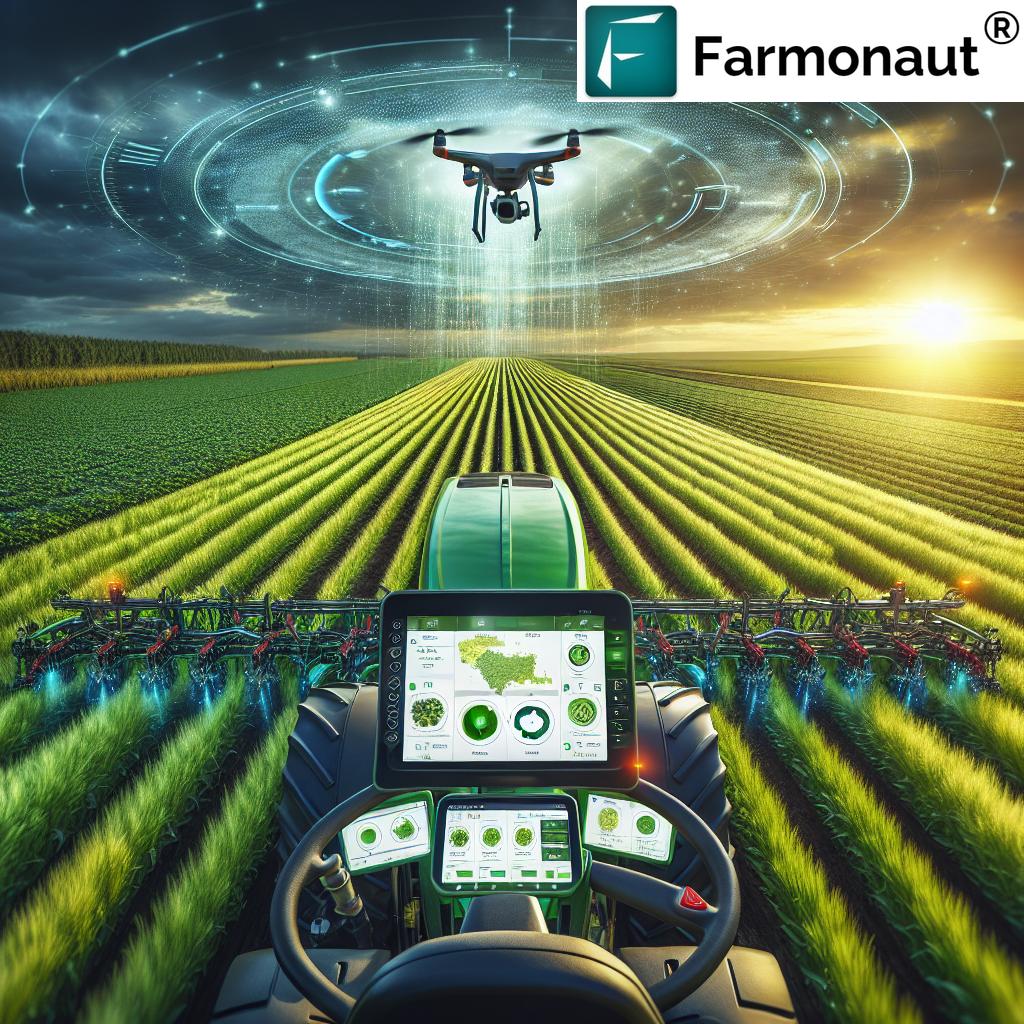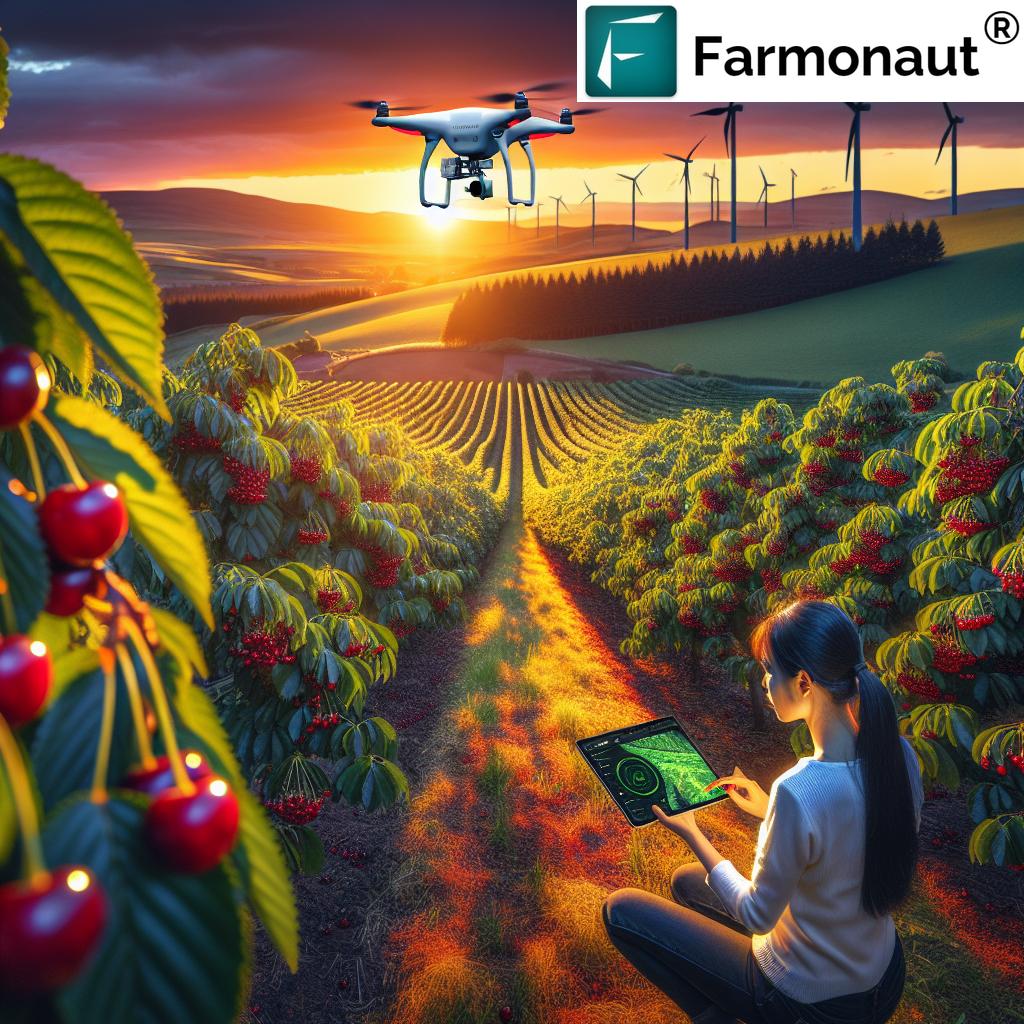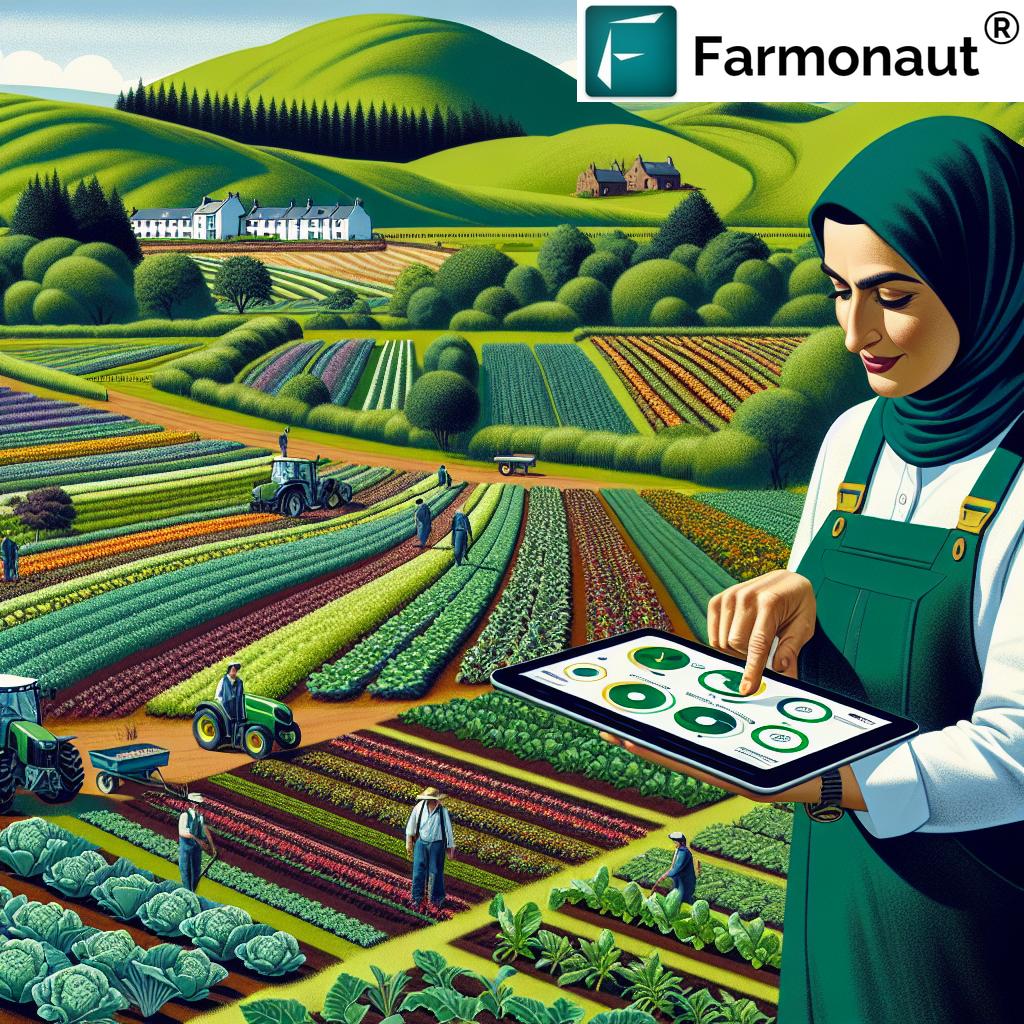Organic Farming in Scotland: 7 Key Drivers of Sustainable Growth
Introduction: Why Scotland Leads in Organic Farming
As a nation defined by majestic landscapes and a deep commitment to sustainable farming, Scotland has become the vanguard of organic agriculture in the UK. Recent organic land statistics from Defra underscore this leadership: Scottish organic farmland has seen a dynamic 13% annual rise to 131,500ha in 2024, part of a 26% cumulative increase since 2021. Ambitious government targets are set to double organic land by 2026, and with robust government incentives for organic farmers, Scotland stands as a model for nature-friendly farming.
Our collective journey toward sustainable farming practices is shaped by a confluence of government support, market maturation, and the integration of technology. Yet, while Scotland surges ahead, the rest of the UK—particularly England and Wales—faces challenges in conversion and support, leaving significant opportunities unrealized and opening the door further to imports.
In this comprehensive analysis, we unpack the seven key drivers of Scotland’s organic farming success, compare performance across nations, and detail the policy, market, and technological frameworks needed to propel sustainable growth across the entire UK and beyond.
Organic Farming in Scotland: Government Incentives & Policy Focus
A cornerstone of Scottish organic growth has been the government incentives for organic farmers. These incentives are not merely financial—they are comprehensive, targeting conversion support, maintenance payments, advisory services, and policy integration. The Scottish Government‘s focus on nature friendly farming practices is amplified by agricultural schemes that align production with environmental targets, biodiversity enhancement, and climate resilience.
In contrast, England’s policy landscape demonstrates a lack of action—notably the suspension of Sustainable Farming Incentives (SFI), resulting in stagnation. Wales experiences ongoing uncertainty, with a lack of organic conversion schemes holding back confidence and overall sector growth.
The 7 Key Drivers of Sustainable Growth in Scottish Organic Farming
Let us now explore in detail the seven key drivers fueling organic farming in Scotland. These drivers are essential not only for Scotland’s continued success—but also as blueprints for England, Wales, Northern Ireland, and other countries committed to nature friendly farming and sustainable agriculture.
1. Strong Government Support and Ambitious Targets
The Scottish Government’s agricultural policy sets a clear strategic direction: double organic farmland to 10% of all farmland by 2026. This target, underpinned by unwavering government support, is among the most ambitious in Europe and sends a strong signal to farmers, investors, and the wider organic food and drink market: Scotland is committed to sustainable, nature-led growth.
- Clear, measurable targets foster confidence and long-term planning for farmers and the sector.
- Dedicated policy and public messaging reduce perceived risks of conversion.
- Integration of organic agriculture as a tool in achieving biodiversity and climate objectives.
- Policy actions align with successful models seen in organic agriculture in Europe.
2. Financial Incentives and Sustainable Farming Incentives
Substantial incentives—including conversion payments and ongoing maintenance support—make it financially viable for farmers to convert and maintain organic production. Unlike England, where the freezing of SFIs has hampered growth and confidence, Scotland’s model encourages both new entrants and seasoned organic farmers:
- Organic conversion schemes reduce transition risk and upfront costs for farmers.
- Maintenance support over several years ensures farmers do not lose faith or abandon the sector.
- These incentives are directly linked to increases in new organic conversions—Scotland doubled its land in conversion in 2024.
Explore Farmonaut’s Carbon Footprinting tools—enabling farmers and agri-businesses to track and reduce environmental impact, a vital element in meeting environmental targets for farmers.
3. Education, Advice, and Training Support
Transitioning to organic systems requires new knowledge, skills, and support networks. Scotland has invested noticeably in advisory services, research, and training platforms:
- On-farm advice and workshops tailored for organic operators and new entrants.
- Promotion of organic-friendly practices—from soil health restoration to natural pest management.
- Emphasis on lifelong learning to keep pace with evolving standards and emerging technologies.
Farmonaut Agro-Admin App enables live monitoring, data-driven decision making, and scalable farm management—a match for sustainable transition needs.
4. Market Growth: Boosting Demand for Organic Food and Drink
The organic food and drink market growth offers one of the most powerful incentives for farmers to convert. In 2024, the UK organic market grew by 7.3%, reaching over £3.7bn—Scotland’s proactive organic action positions its farmers to capture a significant share, instead of ceding ground to EU imports. Key trends include:
- Rising demand for domestic organic produce from conscious consumers.
- Unit sales soared by 4.8%, with double-digit value growth over 12 weeks in early 2025.
- Government focus on public procurement to boost institutional demand for Scottish organic food.
Strengthened supply chains, aided by Farmonaut’s Blockchain-Based Product Traceability, enhance consumer trust and facilitate premium pricing in the organic market.
5. Technology Adoption and Precision Farming Solutions
Organic farming’s stability and profitability are closely tied to transforming traditional agricultural methods with smart technology. Scottish organic farmers are increasingly leveraging solutions such as satellite-based crop health monitoring, AI-driven advisory systems, and blockchain-enabled traceability. These tools deliver:
- Real-time insights into soil, crop health, and field conditions for optimized resource use.
- Effective risk management—early detection of pest pressure or irrigation needs translates into higher yields and reduced losses.
- Enhanced transparency, credibility, and access to finance via data-driven verification.
Farmonaut Fleet Management further supports large-scale organic operators in optimizing operations and reducing ecological impact.
6. Consumer Awareness and Public Procurement
A growing number of British and European consumers now actively seek organic food and drink, motivated by health, climate, and ethical concerns. This awareness drives:
- Higher baseline demand, supporting production increases.
- Opportunities for the Scottish Government to expand organic procurement in schools, hospitals, and public bodies—the basis for sustained long-term market growth.
- Championing local brands—“Produced in Scotland” becomes a trust signal for organic quality and sustainability.
7. Environmental Stewardship and Policy Alignment
Scotland’s approach places environmental stewardship at the center of its organic action plan. By supporting nature friendly farming practices, Scottish policy outcomes include:
- Enhanced biodiversity as organic conversion supports pollinators, soil microfauna, and wildlife.
- Reduced chemical input, aiding in meeting EU-facing environmental targets for farmers.
- Alignment with the vision of organic agriculture in Europe, as seen in countries like Ireland and France, where policy leadership underpins sector success.
Comparative Impact Table on the 7 Key Drivers of Sustainable Organic Farming Growth in Scotland
| Driver | Description | Estimated Impact on Growth (%) | Estimated Policy Support Level | Sustainability Benefit |
|---|---|---|---|---|
| Government Support & Targets | Formal goals to double organic area; public sector leadership | 35% | Very High | Drives sector confidence, long-term nature recovery, and emissions targets |
| Financial Incentives | Conversion & maintenance payments, organic premiums | 20% | High | De-risks transition, ensures rural livelihoods |
| Education & Training | Structured advice, on-farm demos, research | 10% | Medium | Accelerates systems change, upskills workforce |
| Market Growth & Demand | Growing consumer market, public procurement | 15% | High | Reduces reliance on imports, stabilizes rural economies |
| Technology Adoption | Satellite, AI, blockchain tools for management, traceability | 8% | Medium | Improves efficiency, environmental monitoring |
| Consumer Awareness | Education campaigns, branding, transparency | 7% | Medium | Fosters value-driven consumption and loyalty |
| Environmental Stewardship | Biodiversity, soil health focus, climate action | 5% | High | Builds ecosystem resilience, UK environmental targets |
Scotland vs. England, Wales & Northern Ireland: Comparative Performance
The latest organic land statistics UK reveal a significant leadership gap:
- Scotland—organic and converting farmland increased by 13% in 2024 (up to 131,500ha)—fully organic land has grown for six consecutive years.
- England—just a 1% rise (502,800ha), and no substantial growth in a decade; Sustainable Farming Incentives freeze directly impacting new conversions.
- Wales—organic farmland declined by 11% to 68,300ha. Conversion area down 45% year-on-year due to scheme uncertainties, despite strong farmer interest.
- Northern Ireland—remains static, with no recent significant increases in organic uptake.
Scotland’s performance is a direct result of combining policy clarity, incentivisation, market targeting, and continual sector support—delivering strong, reliable growth. The consequences for England and Wales are increased imports from Europe, missing out on the opportunities brought by a rapidly growing organic market and falling short of key UK environmental targets.
Both the Soil Association and sector advisers call for urgent reinstatement of incentives, clarity of policy, and development of comprehensive organic action plans in England and Wales to deliver the significant growth seen in Scotland.
What’s Needed Next? Action Plan to Secure Sustainable Growth
- Government Action: Fast-track an organic action plan in England and Wales—restoring incentives (such as SFI or Countryside Stewardship organic support) is critical.
- Confidence for Farmers: 90% of UK farmers polled express frustration at withdrawn support—reassurance and long-term guarantees are key to commitment and new conversions.
- Market Development: Expand public procurement of organic produce, invest in regional processing capacity, and incentivize supply chain transparency.
- Research & Training: Fund peer-to-peer learning, knowledge transfer partnerships, and local demonstration hubs to widen adoption of nature friendly practices.
- Technology Integration: Promote affordable access to precision agriculture platforms—such as Farmonaut’s real-time crop monitoring and advisory services—to all UK regions.
- Environmental Alignment: Link policy to national environmental targets—biodiversity, net-zero carbon, and sustainable land management objectives.
Farmonaut Crop Loan and Insurance enables satellite-based verification, helping UK farmers secure financing and insurance—reducing fraud risk while supporting environmental compliance.
Farmonaut: Enabling Sustainable, Data-Driven Precision Agriculture
Advanced technology accelerates, scales, and sustains organic farming transitions. Farmonaut delivers a comprehensive suite of satellite, AI, and blockchain-powered tools, providing real-time crop monitoring, resource optimization, traceability, and environmental compliance.
- Satellite-Based Crop Health Monitoring: Multispectral imagery delivers detailed insights on crop health (try via the Farmonaut App).
- AI-Powered Advisory (Jeevn AI): Personalised, real-time agronomic advice using weather and satellite data.
- Blockchain Product Traceability: Secure supply chains build consumer trust and facilitate public procurement acceptance.
- Carbon Footprinting: Live emissions tracking matches environmental compliance and net-zero targets. Learn more
- Fleet & Resource Management: For plantation management and logistics efficiency. Details here.
- API & Integration: Access satellite, soil, and weather data for custom systems (Farmonaut API | API Developer Docs).
With scalable pricing and global accessibility, Farmonaut is matched for progressive farmers, large agribusinesses, and government institutions seeking affordable, data-driven, and sustainable solutions—directly in their transition to, or optimisation of, organic agriculture.
Frequently Asked Questions
What are the main reasons behind Scotland’s leading role in organic farming in the UK?
Scotland combines clear government targets, robust financial incentives, strong educational support, and a focus on environmental stewardship. This framework gives farmers the confidence and practical means to convert to organic farming and thrive in the burgeoning organic market.
How much has organic farmland grown in Scotland compared to other UK nations?
In 2024, organic farmland in Scotland increased by 13% to 131,500ha, while England saw only a 1% rise, and Wales experienced an 11% decline. The area of Scottish land undergoing organic conversion doubled in just one year.
What incentives are available to Scottish organic farmers?
Scottish farmers benefit from conversion payments, ongoing maintenance support, training, and market development schemes—all crucial in de-risking the transition and fostering sector growth.
How do technology and precision agriculture contribute to sustainable organic farming?
Tools like Farmonaut’s satellite monitoring, AI-based advisory, and blockchain traceability help optimize input use, improve crop health outcomes, enhance transparency, and support compliance with environmental regulations—all critical for modern, competitive organic systems.
Why is the organic action plan crucial for England and Wales?
Without focused support and structured transition incentives, England and Wales risk missing growing market opportunities, increasing reliance on imports, and falling short of UK environmental targets that organic farming can help deliver.
Conclusion
Organic farming in Scotland stands as a testament to how visionary policy, targeted financial support, and integrated incentives can accelerate sustainable rural transformation, meet environmental obligations, and cultivate a thriving organic market. By aligning with the seven key drivers outlined here, the rest of the UK—indeed, any nation—can realize not only measurable growth, but also a model for ecological responsibility and food system resilience that benefits our farmers, businesses, consumers, and the planet alike. Scotland’s progress is not just a benchmark for organic farmland conversion in the UK, but a robust call to action for legislators, stakeholders, and innovators everywhere.
Ready to unlock your farm’s potential? Access precision agriculture tools with Farmonaut—on the web, Android, or iOS—and join the next chapter of sustainable agriculture.







